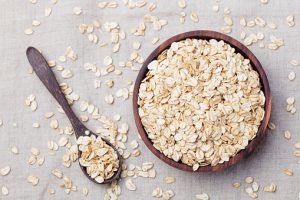
Diet plays a huge role in the energy you have throughout the day. Unfortunately, a lot of people don’t eat an energy-efficient diet and end up relying on crutches like coffee and energy drinks to make it through the day. However, if they were to just change up their diet, they’d be able to skip the energy drinks.
Complex carbohydrates, like whole grains, are your body’s main source of dietary energy. Skipping high-glycemic foods and eating low-glycemic ones like whole grains will help you be full of energy for the day ahead. Also, it’s important to consume fruits and vegetables as well as protein to improve physical strength and provide support to your immune system.
High energy foods to eat
It’s easy to say that you should change up your diet to incorporate more energy-efficient foods; however, putting it into practice can be difficult. Fortunately, we have a list of some healthy foods you can supplement into your diet with ease.
Oatmeal: This is probably the best source of whole grains you could eat in the morning. Oatmeal provides a healthy dose of carbs and protein, as long as you skip on the additives. It’s also full of other vitamins and minerals that help metabolize energy.
Yogurt: A great quick snack, yogurt is full of protein and probiotics. It has lactose, which is a milk sugar, and is converted into energy. The protein makes the energy boost from the lactose last longer.
Water: As many as 75 percent of Americans are dehydrated. If you’re looking to boost your physical and mental performance, making sure you’re well hydrated is the easiest first step you could take. It’s especially important if you’re physically active, as your body will need more water than normal. Try carrying around a water bottle all day and refilling it multiple times.
Quinoa: Truly a superfood, quinoa offers a plant-based complete protein. It’s also a complex carb full of fiber, calcium, iron, magnesium, and potassium. It’s a really healthy protein source that everyone should have in their diet.
Tree nuts: Almonds, cashews, walnuts, and pecans are all examples of tree nuts. They’re loaded with healthy fats, fiber, protein, antioxidants, vitamins, and minerals. Almonds particularly are loaded with magnesium, which is needed for muscle functioning—studies show people with low magnesium tire quicker.
Hummus: This is made of chickpeas and some additives. Chickpeas themselves are super healthy and are loaded with protein, healthy carbs, and healthy fats. It’ll give you energy for a prolonged period of time, as the protein and fat slow down the energy you gain from the carbs.
Citrus fruits: These fruits—oranges, lemons, grapefruits—contain a ton of vitamin C, which is also good for energy levels. People who are vitamin C deficient are more fatigued than those who aren’t. Vitamin C also aids in the bodies creation of amino acids, which produce chemicals that regulate body energy.
Sweet potatoes: Sweet potatoes are starchy vegetables that are full of complex carbohydrates, which are great energy sources. Complex carbs are sugar chains that are easily converted into energy by the body when digested. So, potatoes will give you energy that lasts all day—not to mention you’ll feel fuller than other foods will make you feel.
Kale: Kale is a veggie superfood, possessing a ton of beneficial vitamins and minerals that are great for sustaining energy. It’s also full of calcium, promoting bone growth, and fiber, aiding in digestion.
Food tips that give you energy
Always eat breakfast: A lot of people skip breakfast, simply because they don’t have the time in the morning to eat it. Or, some people just don’t feel hungry in the morning, opting for an early lunch instead. However, it’s known that eating breakfast that is healthy will help to reduce cravings at lunch time, and will help you eat healthier snacks in-between meals. Eating a breakfast with a protein source and a complex carbohydrate will jump-start your metabolism, improving your mental functioning in the morning and allowing your brain to burn more calories throughout the day.
Eat smaller meals more frequently: I’m sure you’ve had that post-lunch feeling that you just want to take a nap. Well, that’s usually caused by a large lunch overloaded with carbs, fats, and sugars. The more food you put in your body, and the harder that food is to digest, the more your body will have to work to get it through. Your brain signals your body to slow down when you’re digesting large meals, making you feel lethargic and slow. If you eat small meals regularly, your body will not have to work as hard to digest meals, allowing you to maintain your energy levels throughout the day.
So, if you’ve been feeling fatigued lately, switching up your diet could be the easiest and most efficient way you can feel better. In addition to incorporating the healthy foods listed above, eating small meals and not skipping breakfast will give you the best start to your day, allowing for stable energy without that afternoon crash.
Related: Eat this, boost energy